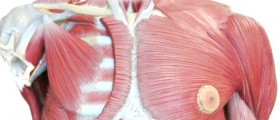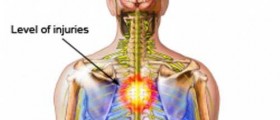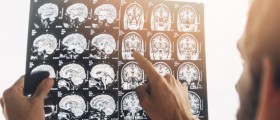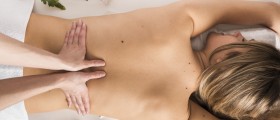
Causes
There are numerous causes of muscle twitching. With regard to physicality, the twitches may be a result of excessive exercise, stress and anxiety or dehydration. Alternatively, a magnesium or calcium deficiency can be a factor, as can an overdose of medicinal products. Some medicine may also produce twitches as a side-effect, for example diuretics, corticosteroids, etc.
Severe, constant twitching may indicate an underlying medical issue. Twitches may indicate innate muscle weakness, but also damage to the nerve controlling the muscle twitching. Certain diseases can also be an underlying cause of muscular twitching: spinal muscular atrophy, amyotrophic lateral sclerosis and muscular dystrophy can all cause muscle twitches. The former is an inherited, degenerative disease of the muscles, amyotrophic lateral sclerosis affects the nerve cells of the nervous system while the latter is a genetic condition that can weaken muscle tissue.
Treatments
Usually, simple lifestyle adjustments and approaches can help stop muscular twitching. Dehydration can be harmful, so care should be taken to maintain proper hydration by increasing fluid intake.
Stress can be a factor in causing muscle twitching. Thus, stress must be managed and controlled. Yoga, meditation and deep breathing will help relaxation. Physical stress or fatigue can also lead to twitching. Often, the twitching is a sign that the muscles are fatigued. Sleep is an ideal method of providing the required level of rest that the body needs and will also help combat stress.
Further to the theme of relaxation, massage can be a great weapon in this regard. Massage will assist in the relaxation of muscles, thus preventing or even stopping twitching. When applied to the affected muscle, lavender oil mixed with olive oil can provide an excellent relaxing effect during massage.
It may also be advisable to decrease one’s level of caffeine intake. Soda, tea and coffee all contain high amounts of the substance and can all contribute to dehydration. As shown earlier, dehydration is harmful to muscle maintenance, so caffeine consumption should be limited in order to avoid electrolytic imbalance.
To counter the effects of calcium and magnesium deficiency, supplements of the elements in question must be taken. This will hopefully help increase the strength and thus health of the muscles. Vitamin D consumption can ensure better absorption of the calcium. If required, consult a medical professional for information about the correct dosages.
If none of these treatments are successful, it is possible that there may be some kind of underlying medical condition or disease. In this case, further medical advice should be sought.
















Your thoughts on this
Loading...